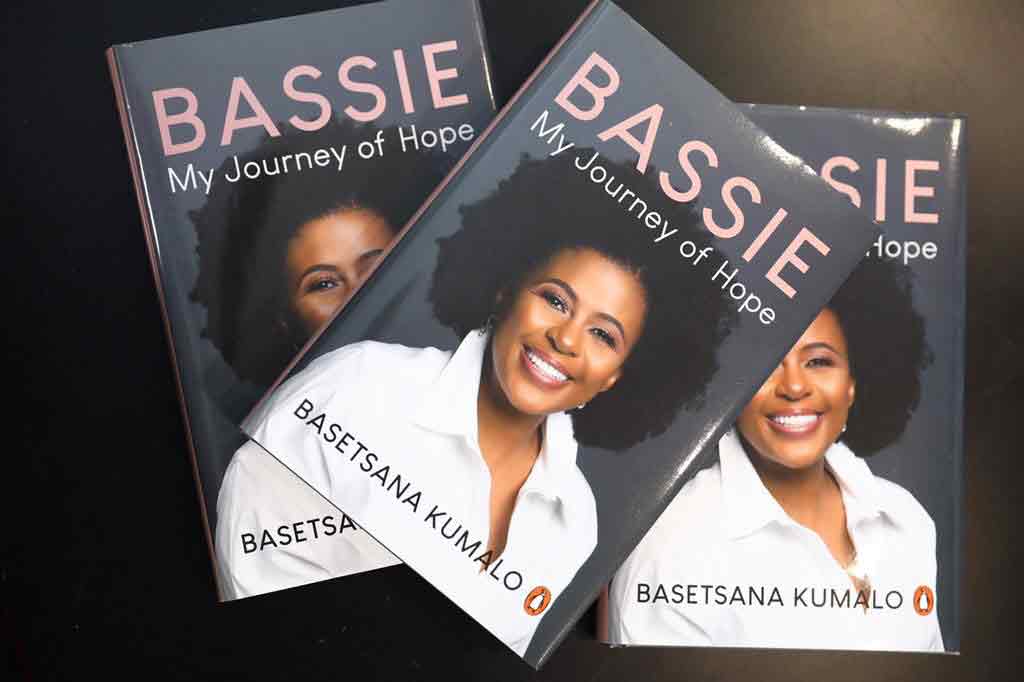The first black Miss South Africa in the democratic era, media personality, entrepreneur and mother launched her book at Avani in Gaborone last friday
GOSEGO MOTSUMI
Basetsana Kumalo will always be remembered as the beautiful young girl from Soweto who was crowned Miss South Africa in 1994 and became the face of the country’s newfound hope of democracy. Almost three decades later, Bassie, as she is affectionately known, has become an even greater force and has collected more life journeys of hope that she recounts in her new book titled, “Bassie: My Journey of Hope.”
The former beauty queen, media personality, entrepreneur and mother was in Gaborone hosted by Avani Resort & Casino last Friday to launch her memoirs that reminded readers of her ranging struggles in a bid to demonstrate that hope is never lost.
“Many people have embraced and supported me over the years and I want them to know me, the essence of me, not from a magazine cover story, television or radio interview but in my own words,” she said at her intimate book signing session. “(The year) 2019 marks 25 years since I was crowned Miss South Africa. It’s also been 25 years of Top Billing, 25 years of being an entrepreneur and walking with Christ. I am also turning 45 years this year.”
In her book, she was drawn to reflect on the zeitgeist of 1994, the year that she refers to as the time of hope. “This is a story of possibilities, of what a black girl child could achieve back in 1994, and of what women can achieve today regardless of their background and their race,” she enthused about a year that marked her breakthrough. “My hope is that my story will inspire a whole new generation of entrepreneurs and achievers.”
Writing about her life, Kumalo said it was a most intense experience because she had to re-live a lot of her dark moments that she thought were closed chapters she would never had to revisit. But she had to be brave and write an honest account of her life events that included opening up about the pressures of her high-profile marriage and their heartbreaking struggle to have a family, motherhood and maintaining a healthy work/life balance. She speaks of how she pays it forward through mentoring young people that she has met along the way. As the first black presenter of the glamorous lifestyle TV show, Top Billing, she interviewed legends like Oprah Winfrey, Michael Jackson, and Luther Vandross and talks about her relationships with mentors like Nelson Mandela.
The mood turned sombre when Bassie told the story of her miscarriage, a subject she said most people don’t want to openly talk about. She lost her twin babies at 20 weeks in 2007 after they had just named them. “As women, there is a lot of blame when our bodies let us down,” she reflected. “You keep thinking what could I have done better. I could have lost hope then but I refused and it is my faith that carried me out of that dark hole. I am standing truly in the light of my own truth in this book.”
“Bassie: My Journey of Hope” also chronicles the secrets of Bassie’s success and the lessons she has learnt along the way. In this authentic and refreshingly candid memoir she also shares the legal battles she has had to wage in order to protect her name and her brand over the years. She gives a chilling account of the stalker who has harassed her for decades and the spurious ‘sex-tape’ allegation that rocked her family and almost destroyed her career.
“I have lived a charmed life,” she makes the acknowledgement with these loaded words. “Yes, I have been truly blessed but there have also been man barriers to overcome and battles to fight. I wanted to share those stories and pay tribute to those who sheltered me. My father used to say, ‘Baby girl, keep the faith and don’t lose hope.’ May my journey of hope inspire you to do the same.”
Reviewing Bassie’s new book, media personality and storyteller, Tshepo Ntshole said there were certain parts of the book that mirrored her own path. “It is an easy to read book,” Ntshole said. “It felt like she was retelling a friend a story because we grew up in those times and we could relate. As women, our stories are the same and the only difference is the choices we make along the way.”

